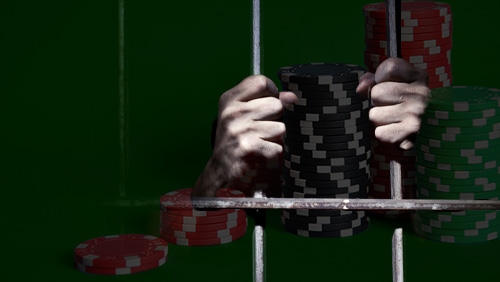Hawaiian policemen swooped down on different illegal card rooms and underground slot parlors in the island paradise, rounding up 35 people involved in illegal gambling.
 KITV4 reported that law enforcement agencies have stepped up the enforcement of gambling laws in Hawaii, one of two remaining US states that bans all forms of gambling.
KITV4 reported that law enforcement agencies have stepped up the enforcement of gambling laws in Hawaii, one of two remaining US states that bans all forms of gambling.
At least 35 people were arrested as police cracked down on illegal gambling dens in Oahu. Police said the raid was just an opening salvo.
“Game rooms affect people of all ages and social economic levels. We sometimes hear people say that gambling is harmless form of entertainment, however we know that game rooms are often the hubs of illegal activity such as drug dealing, robberies, assaults and homicides have been associated with game rooms,” said Major Larry Lawson of Honolulu Police District’s (HPD) criminal investigation division, according to the news report.
Prior to the raids, Lawson said that police had already warned an estimated 100 illegal card rooms and underground slots parlors to cease operations or experience the full force of the law.
Now that they are through scouring the urban Honolulu area between Kalihi and Waialae, police will target illegal gambling parlors island-wide in the months to come.
Illegal gambling raids are not new in Hawaii. In 2012, authorities arrested at least nine persons playing poker inside a residential house. Police slapped the host with charges of second degree gambling promotion and possession of a gambling device.
Interestingly, the raids were conducted at a time when Hawaii is once again toying with the idea of allowing gambling.
State Sen Will Espero has introduced a 28-page bill seeking to create the Hawaii Internet Lottery and Gaming Corporation.
In a nutshell, Espero’s bill aims to legalize internet lottery, casino games, and poker. The proceeds collected from these games would go to public schools, the University of Hawaii system, and programs to address problem gambling.





